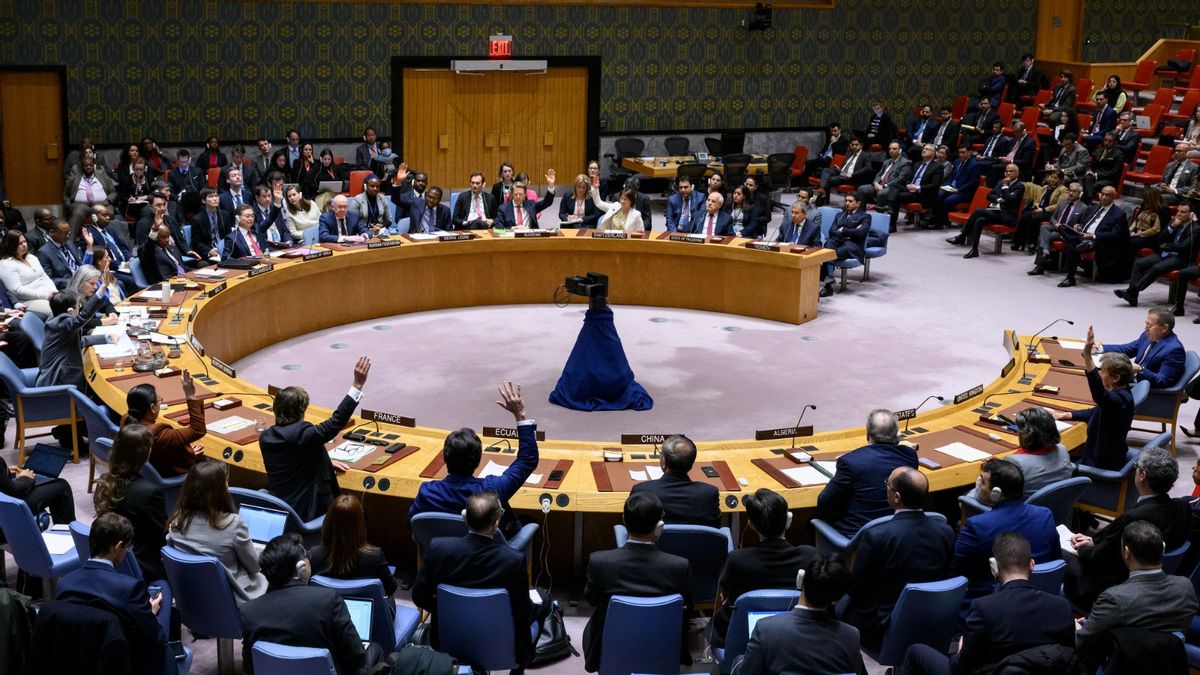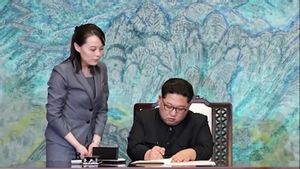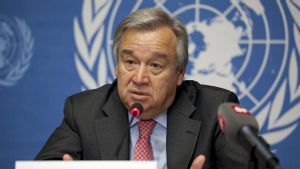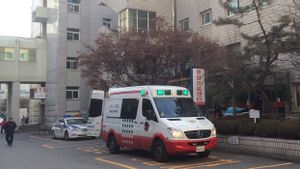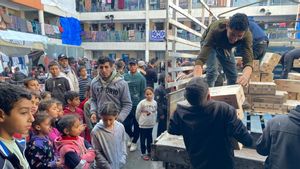JAKARTA - The UN Security Council succeeded in agreeing on a resolution demanding an immediate ceasefire in the Gaza Strip, Palestine, a decision which was welcomed by Hamas but not by Israel, with the United States deciding to abstain from voting.
Resolution 2728 was submitted by the 10 non-permanent member states of the UN Security Council (Algeria, Ecuador, Japanese Guiana, South Korea, Malta, Mozambique, Sierra Leone, Slovenia, and Switzerland), demanding an immediate ceasefire in Gaza during the month of Ramadan. This received support from 14 countries, with Uncle Sam's country abstaining.
"The Palestinian people are suffering greatly. This bloodshed has gone on for too long. It is our obligation to end this bloodshed, before it is too late," Algeria's Ambassador to the UN, Amar Bendjama, told the Security Council after the vote, reported by Reuters, March 26.
This resolution was agreed after the previous council failed to approve three previous draft resolutions due to vetoes by permanent member countries of the council.
"This resolution must be implemented. Failure is unforgivable," wrote UN Secretary-General Antonio Guterres on social media.
Meanwhile, Israeli Prime Minister Benjamin Netanyahu said America's failure to veto the resolution was a "clear retreat" from its previous position and would harm Israel's war effort as well as the release of more than 130 hostages still being held by Hamas.
"Our vote does not, and I repeat that it does not represent a change in our policy," White House spokesman John Kirby told reporters.
"Nothing has changed regarding our policy. Nothing," he said.
In favour: 14
Against: 0
Abstention: 1
The UN Security Council has adopted a resolution demanding an immediate ceasefire in Gaza and the immediate, unconditional release of all hostages.https://t.co/nOBuQOkxnj pic.twitter.com/QkZ7J7wHgi
— United Nations (@UN) March 25, 2024
Meanwhile, America's Ambassador to the UN Linda Thomas-Greenfield said the United States fully supports "some of the important objectives in this non-binding resolution," but added that Washington does not agree with everything in the resolution, which also does not condemn Hamas.
"We believe it is important for the council to speak out and make it clear that a ceasefire must result in the release of all hostages," Thomas-Greenfield told the council.
"A ceasefire could begin immediately with the release of the first hostages, so we must put pressure on Hamas to do that," she stressed.
The Ministry of Health in Gaza announced Monday that at least 32,333 Palestinians have been killed as a result of Israeli attacks since the conflict broke out on October 7. The ministry statement also said that another 74,694 Palestinians had been injured as a result of the attacks.
"It was the Hamas massacre that started this war," said Israel's UN Ambassador Gilad Erdan.
"The resolution that has just been passed makes it seem as if the war started by itself. Israel did not start this war, and Israel also does not want this war," he stressed.
Separately, UN deputy spokesman Farhan Haq said Security Council resolutions are international law, "so they are binding like international law."
However, if there is no ceasefire in Gaza, it is unlikely that the Security Council will take further action.
The resolution also "emphasizes the urgent need to expand the flow of humanitarian assistance and strengthen the protection of civilians throughout the Gaza Strip and reiterates its demand for the removal of all obstacles to the provision of humanitarian assistance on a large scale."
The Hamas group welcomed the resolution, which also demands the unconditional release of all hostages taken by the militant group in the October 7 attack on southern Israel, saying it was ready to engage in a prisoner exchange with Israel.
SEE ALSO:
It is known that the US has vetoed three previous draft council resolutions regarding the war in Gaza. They also abstained twice, allowing the council to adopt a resolution aimed at increasing aid to Gaza and calling for a longer pause in fighting.
Russia and China also vetoed two US draft resolutions on the conflict in October and on Friday.
"This is definitely a turning point," Palestine's UN envoy, Riyad Mansour, told the Security Council after Monday's vote.
"This should save lives in the field," he hoped.
The English, Chinese, Japanese, Arabic, and French versions are automatically generated by the AI. So there may still be inaccuracies in translating, please always see Indonesian as our main language. (system supported by DigitalSiber.id)
